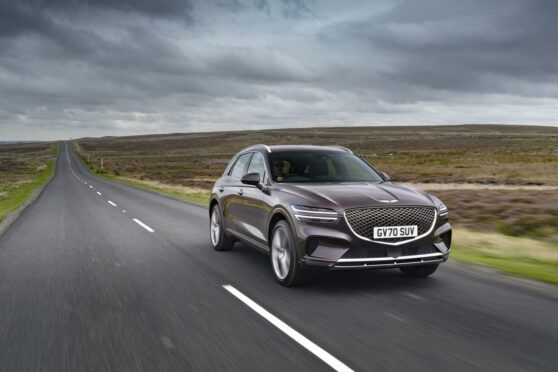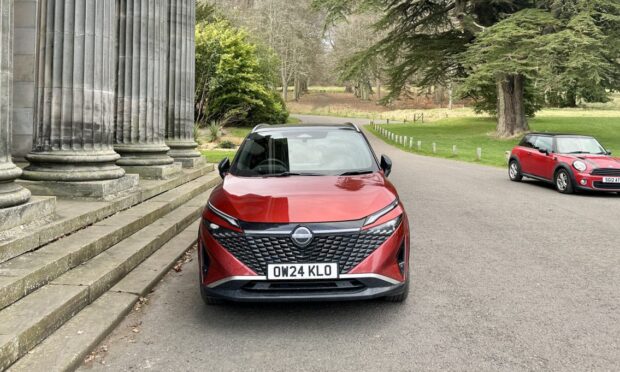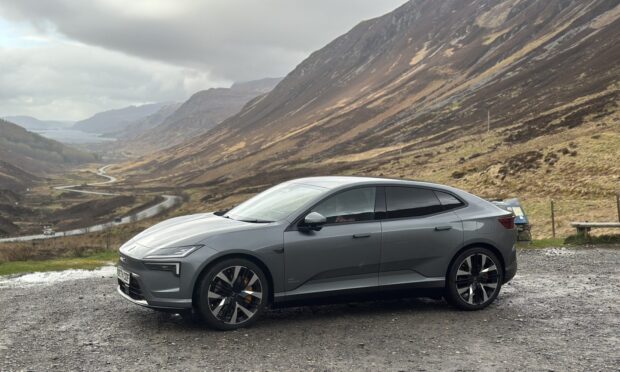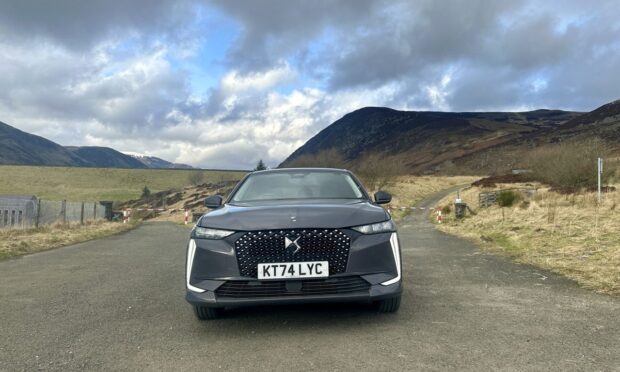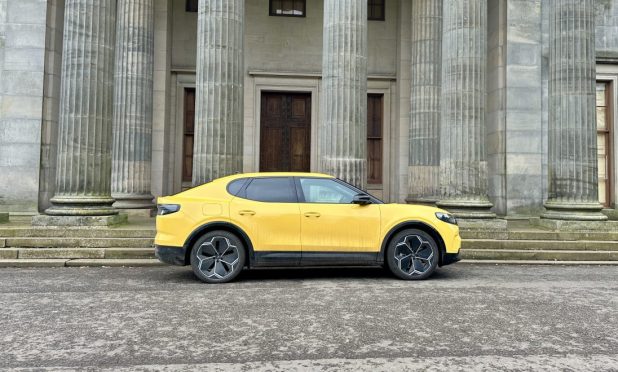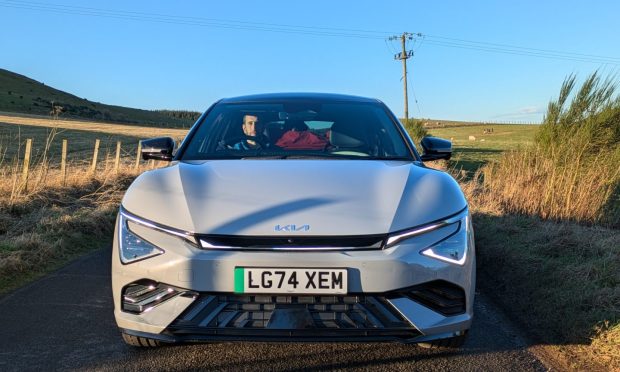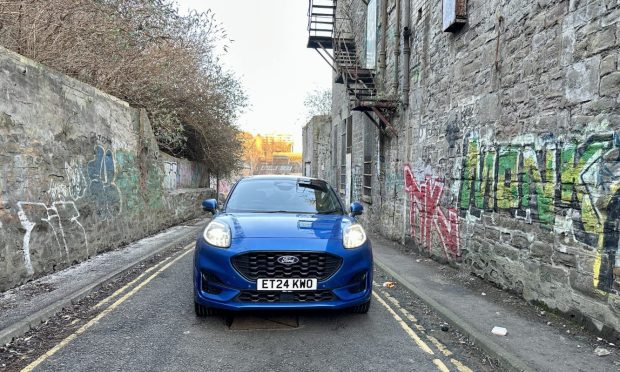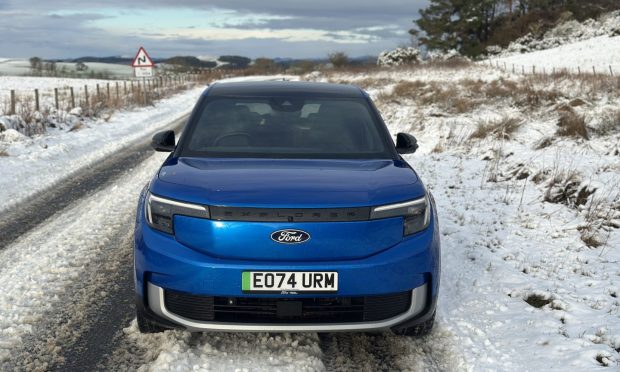There’s a new player in the luxury car market – Genesis.
The South Korean firm has launched two luxury saloons and two luxury SUVs to the UK market. The G70 and G80 are mid-sized and large saloons. Meanwhile the GV70 and GV80 are their SUV counterparts.
Genesis is owned by Hyundai, acting as its high-end brand in the same way Lexus does for Toyota.
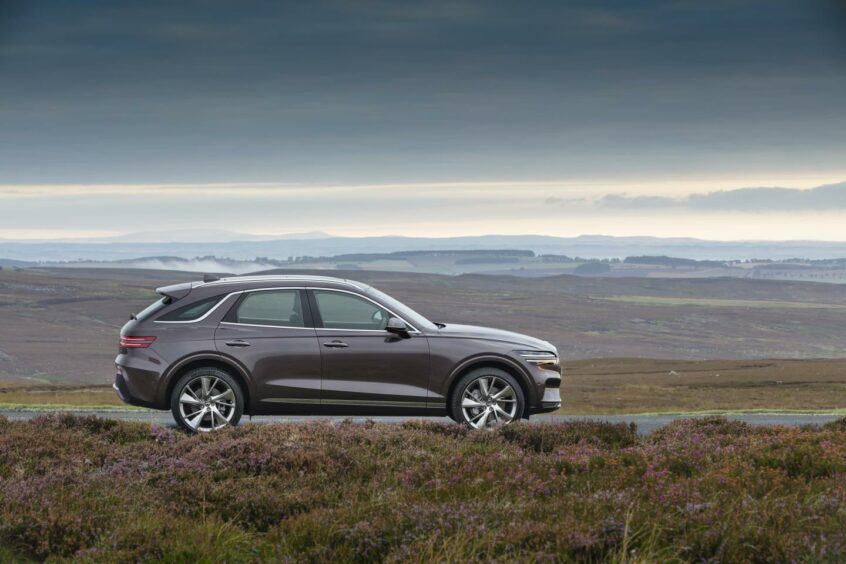
The company brought a selection of its cars to Loch Lomond to give Scottish motoring journalists an exclusive first taste of the brand.
I spent a couple of hours touring around in the smaller of the two SUVs, the GV70.
Taking on the establishment
It’s pitched as a rival to established premium SUVs such as the Audi Q5, BMW X3, Jaguar F-Pace and Volvo XC60.
It has several aces up its sleeve, however, not least of which is its price tag. Starting from £39,450 it undercuts all of its rivals quite significantly.
And that’s before you consider the rest of the package. All Genesis models come with a five year warranty, five years of servicing, and five years of roadside assistance.
It gets even better. When your GV70 needs servicing, someone from Genesis will pop over to your house and collect it, leaving behind a courtesy car for you to use until they return your vehicle.
If I was a Bentley or an Aston Martin driver I’d wonder why I had to take my high price car to the dealership myself when it needs a service.
All those lovely extras would be for naught if the car itself was a turd, however. Thankfully it is anything but.
The GV70 is a handsome vehicle with svelte proportions, nice detailing and a premium grille. Our drive day was based at Cameron House, on the banks of Loch Lomond. Several passers-by looked at the array of Genesis cars and asked if they were Aston Martins or Bentley.
High quality interior
The interior of the Genesis GV70 is extraordinary. Quilted leather seats are among the most comfortable I’ve ever sat on. They’re electrically operated as well as heated and cooled. There’s fine leather, soft touch materials and premium chrome trim everywhere. A huge 14.5in widescreen displays all the info you need.
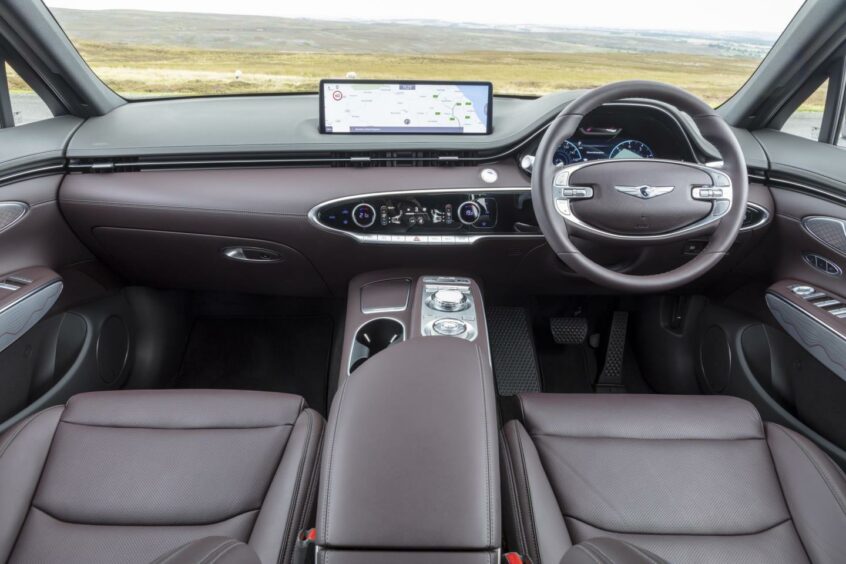
You can either touch the screen or use a stylish rotary bezel to operate the controls, with the latter being easier to use while driving.
The quality and craftsmanship of the interior is at least the equal of anything Mercedes, Audi or BMW offer, and in fact probably outclasses the German premium car makers.
The rear has space for three adults and the boot is a capacious 542 litres.
There’s plenty of great technology, including a 360 degree birds eye camera and a very clever feature that shows the rear view on the dashboard when you indicate.
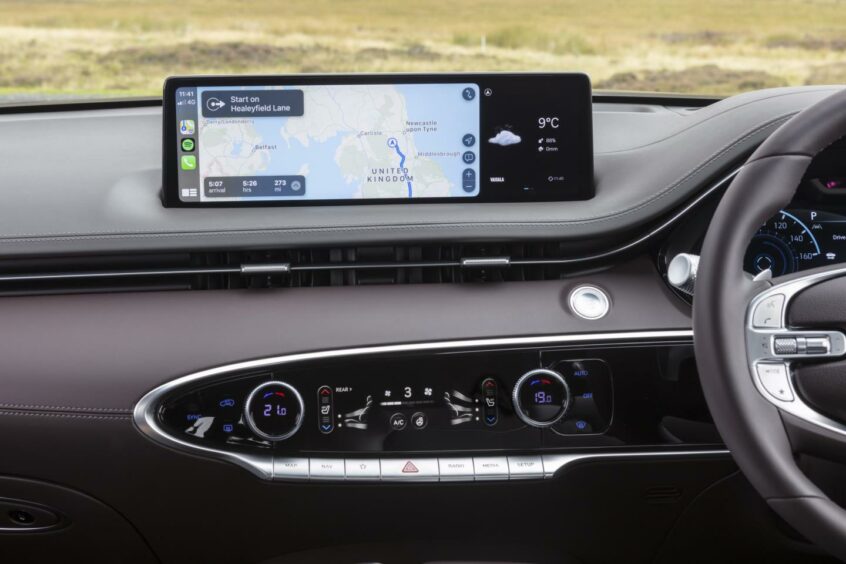
Buyers have the choice of a 2.5 litre petrol engine or a 2.2 litre diesel. I drove the diesel model, which is by far the better choice. My car indicated fuel economy of 42mpg, where in real world driving the petrol model would be lucky to clear 30mpg.
Sure footed and refined
The GV70 is four-wheel drive, which I was glad of on a very rainswept day. It can actually do a bit of proper off roading as well, thanks to decent ground clearance and various modes to deal with snow, mud and sand.
On road is where the Genesis GV70 will spend most of its life so it’s just as well that this is where it excels.
Cruising up the A82 towards Tarbet I was struck by how quiet the car is. Engine and wind noise are virtually non-existent and only a modicum of tyre roar lets you know you’re on the move. The 207bhp diesel hustles the car along quickly, with 0-62mph coming up in 7.9 seconds, and the eight-speed automatic box goes about its job seamlessly.
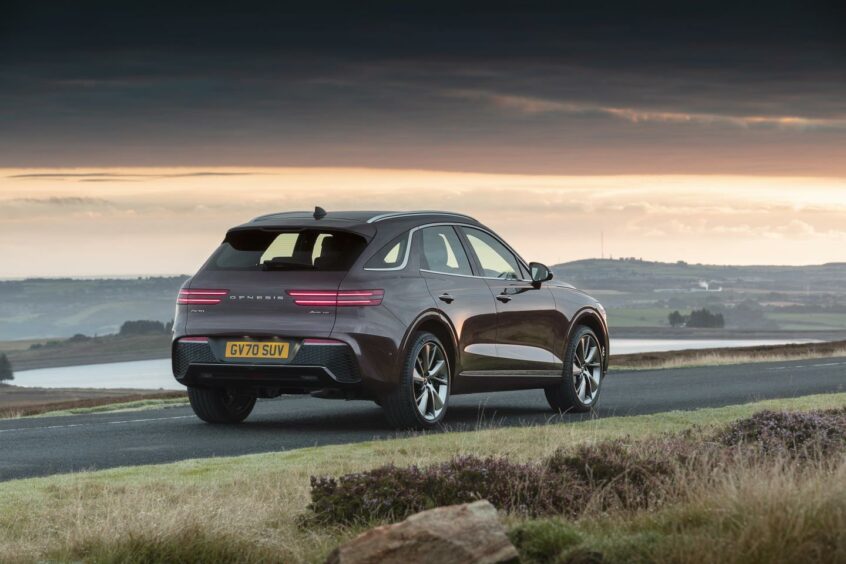
The suspension took the awkward cambers and potholes of the narrow road by Loch Long in its stride, soaking up everything. It doesn’t handle with the aplomb of an X3 or Q5 but most owners won’t care – comfort is where this car’s at.
I came away deeply impressed by the GV70. At present there are only petrol and diesel models but a full electric version is expected within the next couple of years.
Genesis is a brand I’ll be keeping a close eye on.
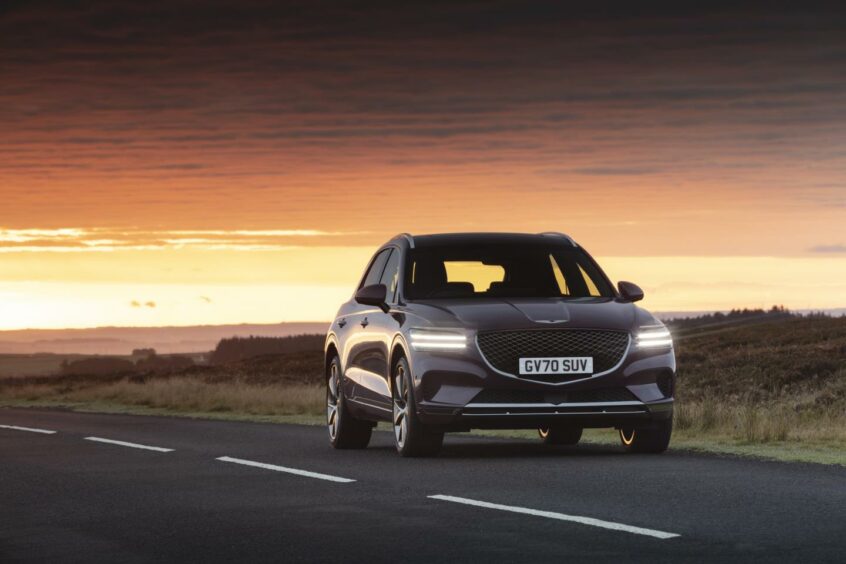
Price: from £39,450
0-62mph: 7.9 seconds
Top speed: 134mph
CO2 emissions: 185g/km
Economy: 40mpg
